When the welfare of our children is at stake, the choices we make are deeply ingrained with our perception of their best interests. These decisions, complex and multifaceted, are a true reflection of our individual values.
While parents often rely on family, like grandparents, to assist with childcare, instances can arise when confidence in certain individuals wavers, even if they are close kin, like one’s own mother.
The instinctual shield of parenthood plays a pivotal role in safeguarding our young ones. We possess an inherent sense of guardianship and a keen sensitivity to potential hazards. This inner compass steers us through challenging decisions, regardless of whether they involve curtailing contact or scrutinizing the capabilities of those nearest to us.
Consider the case of OP, who recently encountered a scenario demanding her to address apprehensions about her mother’s aptitude for child care. Despite the deep-rooted bond and kinship, OP harbored reservations concerning her mother’s dogs—two sizable canines with a track record of aggression.
OP’s journey as a working mother threw a curveball when her regular childcare arrangement collapsed. Stepping in at the eleventh hour, her sister proposed that their mother take up the mantle.
Nonetheless, OP’s uneasiness in the presence of the dogs led her to decline, placing her child’s safety above all else. This choice, stemming from her anxieties, ignited a heated dispute between OP and her mother.
This clash laid bare the intricate equilibrium between family ties and the duty to ensure a secure environment for their child. Despite the emotional aftermath and the strain on their relationship, OP stood firm in her belief that she possessed the authority to dictate where her child should reside, even if it meant grappling with tough choices regarding kin.
A conflict erupted between OP and her mother when OP voiced her reservations about leaving her 10-month-old child in her mother’s care.
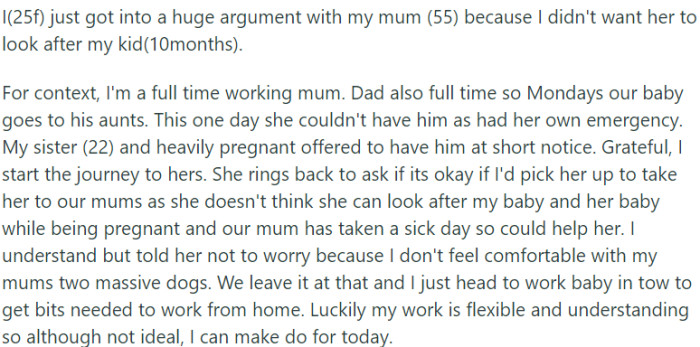
An argument ensues over leaving baby with dogs
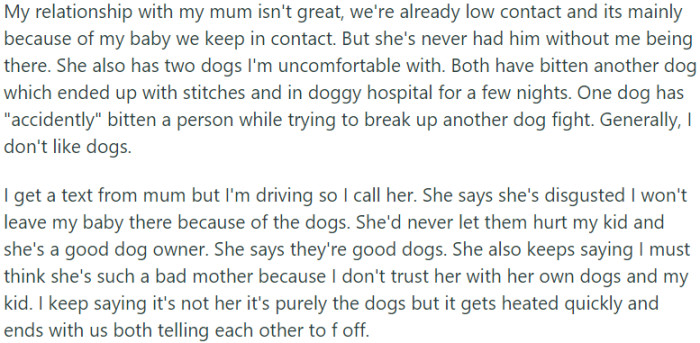
OP and her mother are no longer speaking
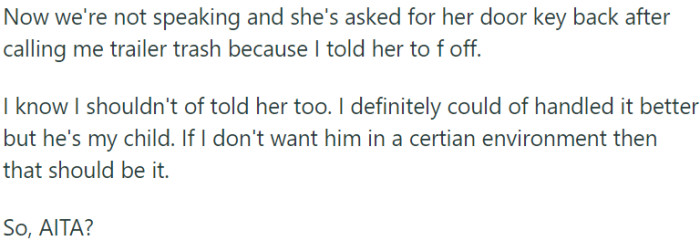
OP has the right to decide the environment in which her child is cared for
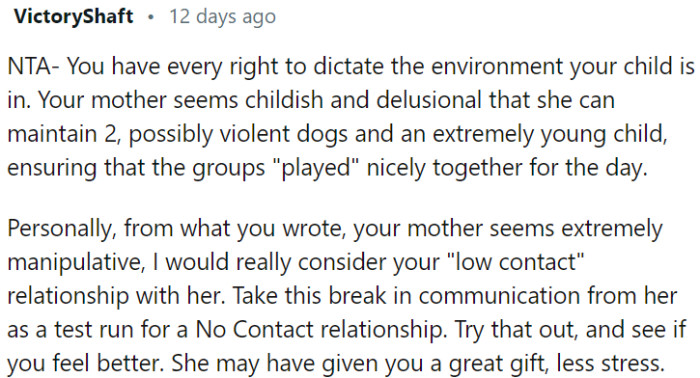
Considering the history of the dogs OP has every right to say no

OP should cut ties with toxic individuals for a healthier future
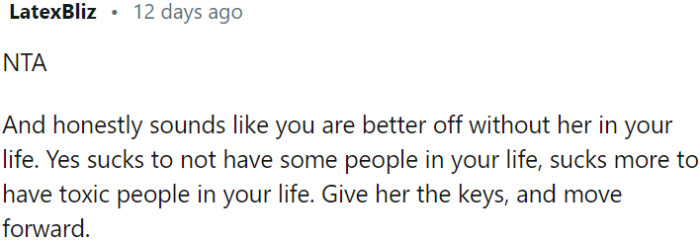
As mothers, OP should prioritize her children’s safety
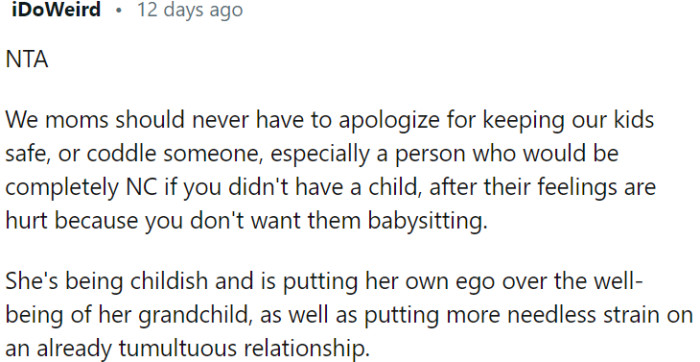
Parental autonomy is paramount

OP’s concern for her child’s safety is entirely valid
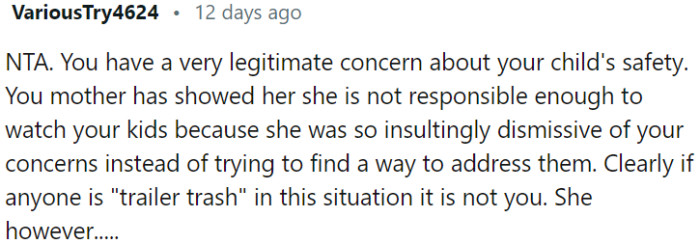
OP has the right to choose who cares for her child
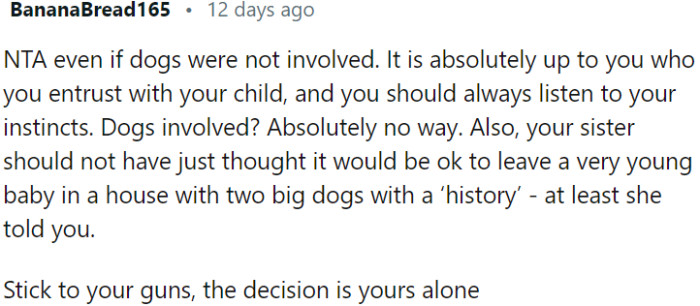
The dogs in question have a history of biting, making them unreliable around children.
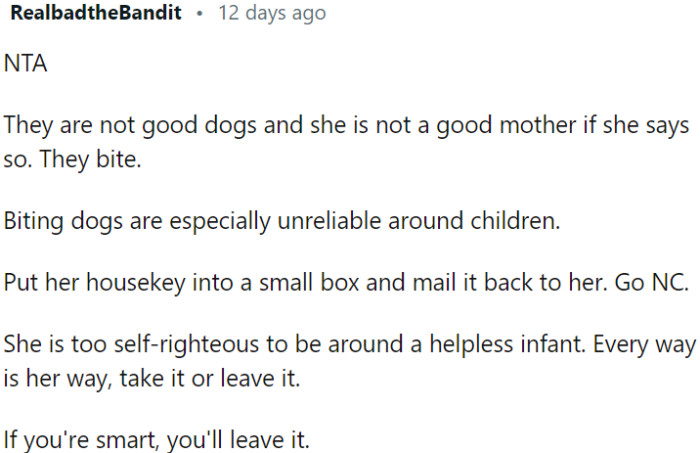
If OP feels uncomfortable with someone’s dogs, that’s reason enough to make her own choices

OP should reclaim her freedom by returning the key

Undoubtedly, OP’s choice to give precedence to her child’s safety stands as an unquestionably sound decision. As parents, our foremost duty remains aligned with what we deem optimal for our children, even if it entails challenging decisions that might exert pressure on our relationships with cherished ones.
The skepticism OP holds towards her mother’s dogs finds its grounding in past occurrences, thus validating her stance. It falls upon OP’s mother to grasp her daughter’s apprehensions and abstain from introducing superfluous concerns. Ultimately, each parent is obliged to heed their instincts and take requisite actions to assure their child’s security and tranquility.

